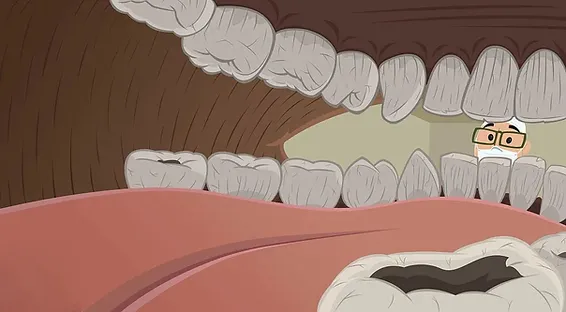Is It Necessary to Remove Wisdom Teeth?

Wisdom teeth are the third molars on the human alveolar bone , and are also the latest molars to erupt. Usually there are 4 in total, symmetrical up and down, while some people may have fewer, or even none. Because they emerge very late, usually at the age of 16 to 25 when people’s physical and psychological development are close to being mature at this time, they are regarded as a symbol of “wisdom coming”, hence they are called “wisdom teeth.”
Wisdom teeth are actually called “useless teeth” because the human diet is getting more and more refined, and people no longer need the powerful jaws of ancient humans to provide such a strong bite force and food grinding area. The role of the faculty gradually weakened, and now these teeth often provide more problems than help. They are prone to tooth decay and may also grow crooked, which affects the normal growth of adjacent teeth.
But is it necessary to remoeve wisdom teeth even if they’re not causing any pain? Frankly, the pain may not be the biggest reason of the removal. If a wisdom tooth is crooked, it should be removed for the potential damage it may bring to our oral system. Crooked wisdom teeth are not easy to clean, and food residue often stays around them. This will easily cause cavities in the molars in front of the wisdom teeth, thereby causing toothache. This type of teeth are usually buried in the alveolar bone. If inflammation occurs frequently, or when a disease is diagnosed, they must be removed.
If the wisdom tooth is decayed, the decayed occlusal surface can be filled, but the adjacent surface decayed teeth would require outstanding filling technique to be fixed properly. Instead of filling the tooth, it is better to remove it. If the wisdom tooth has deep caries and needs root canal treatment, it is also recommended to be removed.
When some wisdom teeth grow, only part of the crown is exposed on the gums, with the rest being covered by the gums. In this way, a narrow and deep blind pocket is formed between the wisdom tooth and the gums, which is easy to contain residues or germs. In addition, the gums on the crown are easily damaged when people chew and form ulcers or pericoronitis.
In a word, it is more often than not recommended to remove the wisdom teeth even if they are yet to cause problems for the health risks it brings to not just the wisdom teeth themselves but also adjacent teeth, and people shouldn’t wait until serious pain to consider their removal.
